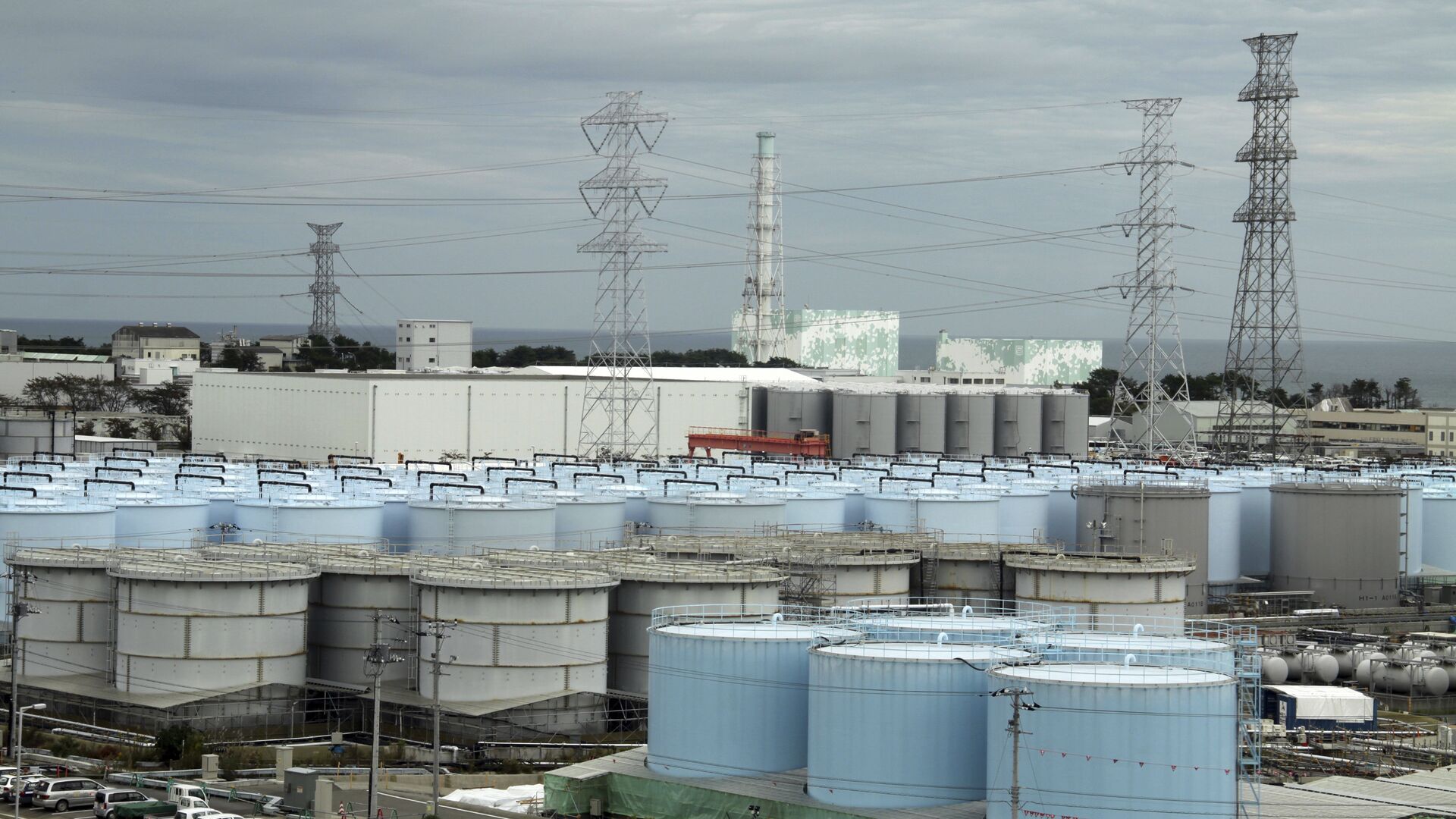https://sputnikglobe.com/20230707/china-partially-bans-imports-from-japan-due-to-fukushima-water-discharge-plan-1111713254.html
China Partially Bans Imports From Japan Due to Fukushima Water Discharge Plan
China Partially Bans Imports From Japan Due to Fukushima Water Discharge Plan
Sputnik International
China has decided to ban imports of goods from Japan's 10 prefectures due to Tokyo's plans to release contaminated water from the Fukushima Daiichi nuclear power plant (NPP) into the sea, the Chinese General Administration of Customs said on Friday.
2023-07-07T06:04+0000
2023-07-07T06:04+0000
2023-07-31T17:01+0000
world
japan
international atomic energy agency (iaea)
fukushima
https://cdn1.img.sputnikglobe.com/img/106091/77/1060917747_0:156:3001:1844_1920x0_80_0_0_d0ef4c01be8914cb18618a35ccfbe04f.jpg
China has decided to ban imports of goods from Japan's 10 prefectures due to Tokyo's plans to release contaminated water from the Fukushima Daiichi nuclear power plant (NPP) into the sea, the Chinese General Administration of Customs said on Friday. Beijing will also increase control of sea food products from other areas in Japan and start checking all goods coming to the country from Japan for radioactivity, the statement read. At the same time, the Chinese customs service gave no details when the ban would go into effect. In 2021, Japan announced its plans to dispose of Fukushima's treated water and invited the (IAEA) to verify that it would be safe. Some countries, including New Zealand and South Korea, initially opposed Japan's plans, fearing that radioactive water would affect their population. Tokyo had originally planned to begin discharging water purified of all radionuclides except tritium into the ocean 1 kilometer (0.6 miles) from the NPP this spring. However, due to adverse weather conditions and other factors, the deadline was pushed back to the summer of 2023.
japan
fukushima
Sputnik International
feedback@sputniknews.com
+74956456601
MIA „Rossiya Segodnya“
2023
Sputnik International
feedback@sputniknews.com
+74956456601
MIA „Rossiya Segodnya“
News
en_EN
Sputnik International
feedback@sputniknews.com
+74956456601
MIA „Rossiya Segodnya“
Sputnik International
feedback@sputniknews.com
+74956456601
MIA „Rossiya Segodnya“
imports from japan, fukushima water discharge plan, fukushima daiichi nuclear power plant
imports from japan, fukushima water discharge plan, fukushima daiichi nuclear power plant
China Partially Bans Imports From Japan Due to Fukushima Water Discharge Plan
06:04 GMT 07.07.2023 (Updated: 17:01 GMT 31.07.2023) BEIJING (Sputnik) - On Tuesday, the International Atomic Energy Agency (IAEA) said that Japan's plans to discharge treated water from the Fukushima NPP into the sea were in line with safety standards of the IAEA.
China has decided to ban imports of goods from Japan's 10 prefectures due to Tokyo's plans to release contaminated water from the
Fukushima Daiichi nuclear power plant (NPP) into the sea, the Chinese General Administration of Customs said on Friday.
"The Chinese customs service is imposing ban on imports of food products from 10 Japanese prefectures, including Fukushima, to prevent radioactive Japanese products from being shipped to China and ensure safety of imported production for Chinese consumers," the Chinese customs administration said in a statement released on WeChat.
Beijing will also increase control of sea food products from other areas in Japan and start checking all goods coming to the country from Japan for radioactivity, the statement read.
At the same time, the Chinese customs service gave no details when the ban would go into effect.
In 2021, Japan announced its plans to dispose of
Fukushima's treated water and invited the (IAEA) to verify that it would be safe. Some countries, including New Zealand and South Korea, initially opposed Japan's plans, fearing that radioactive water would affect their population.
Tokyo had originally planned to begin discharging water purified of all radionuclides except tritium into the ocean 1 kilometer (0.6 miles) from the NPP this spring. However, due to adverse weather conditions and other factors, the deadline was pushed back to the summer of 2023.


